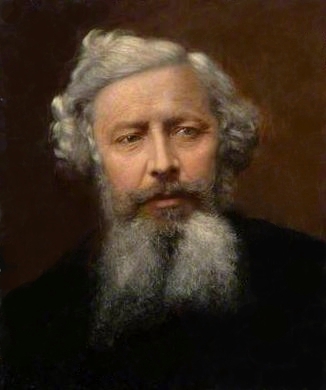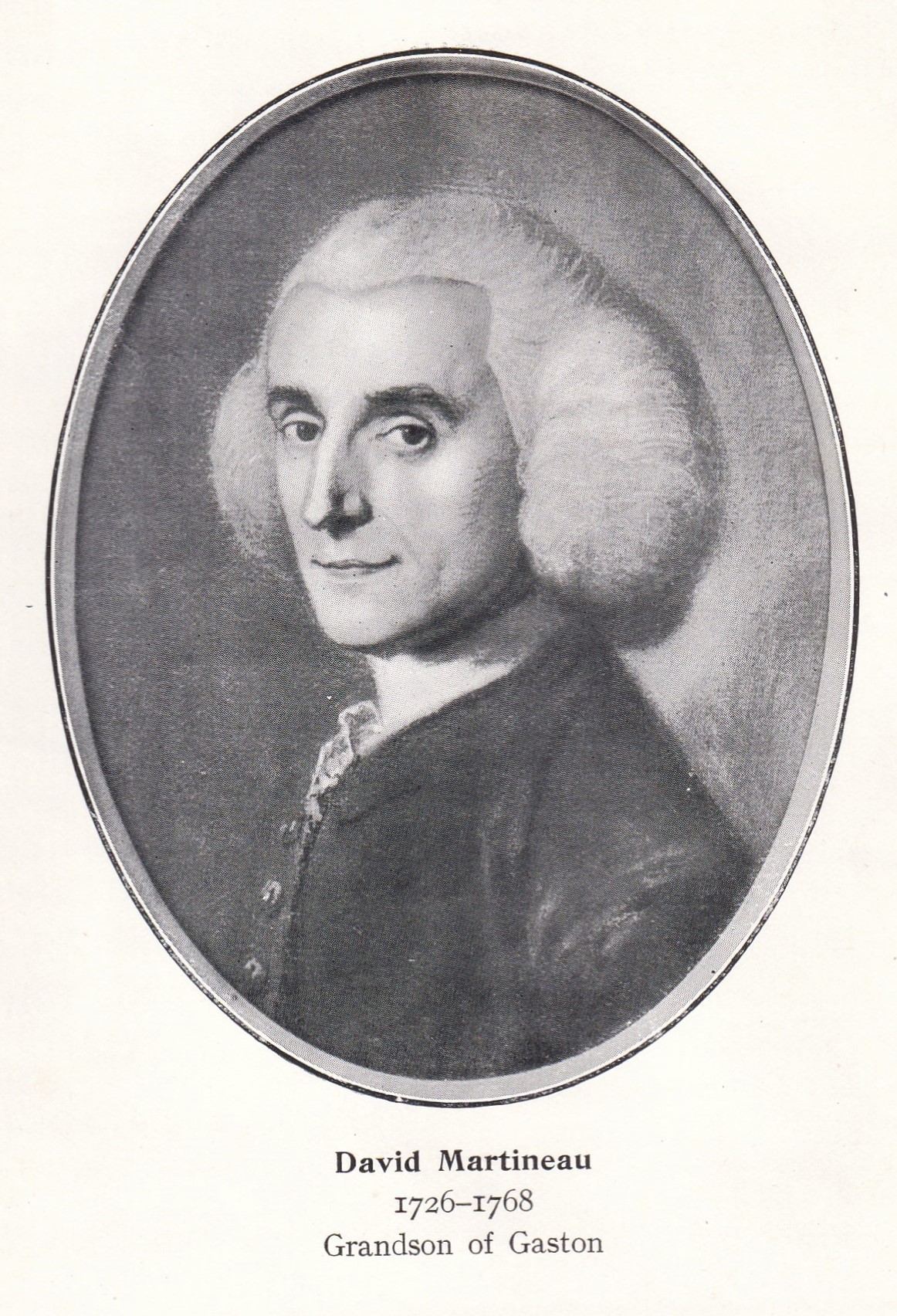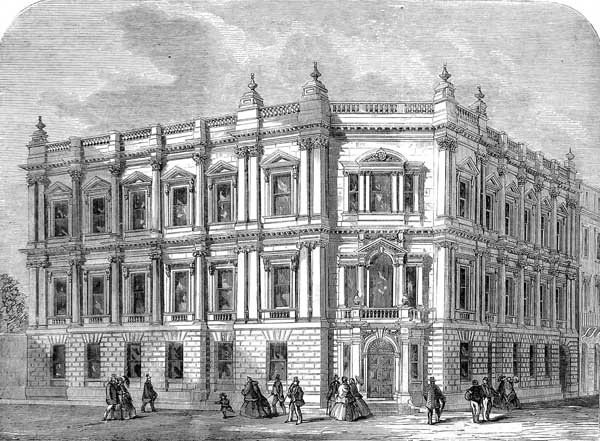|
Civic Gospel
The Civic Gospel was a philosophy of municipal activism and improvement that emerged in Birmingham, England, in the mid-19th century. Tracing its origins to the teaching of independent Nonconformist (Protestantism), nonconformist preacher George Dawson (preacher), George Dawson, who declared that "a town is a solemn organism through which shall flow, and in which shall be shaped, all the highest, loftiest and truest ends of man's moral nature", it reached its culmination in the mayoralty of Joseph Chamberlain between 1873 and 1876. After Dawson's death in 1876 it was the Congregationalist pastor R. W. Dale who took on the role as the movement's leading nonconformist spokesman. Other major proponents included the Baptist Charles Vince (Baptist), Charles Vince and the Unitarianism, Unitarian H. W. Crosskey. Early years During its early years in the 1850s and 1860s the concept of the Civic Gospel combined Dawson's liberal theology with a social and political vision of civic ... [...More Info...] [...Related Items...] OR: [Wikipedia] [Google] [Baidu] |
George Dawson
George Dawson may refer to: Politicians * George Dawson (Northern Ireland politician) (1961–2007), Northern Ireland politician * George Walker Wesley Dawson (1858–1936), Canadian politician * George Oscar Dawson (1825–1865), Georgia politician and Confederate officer * George Robert Dawson (1790–1856), Anglo-Irish Tory politician Others * George Dawson (author) (1898–2001), American author, learned to read at age 98 * George Dawson (businessman) (1907–1985), British businessman and convicted fraudster * George Dawson (cricketer) (1799–1843), English cricketer * George Dawson (preacher) (1821–1876), English preacher and civic activist * George Dawson (trainer) (1853–1913), British racehorse trainer * George Geoffrey Dawson (1874–1944), English editor of ''The Times'' * George Mercer Dawson (1849–1901), Canadian surveyor * George William Dawson, Confederate officer from Alabama, first captain of the Perote Guards * George Dawson (boxer) George Dawso ... [...More Info...] [...Related Items...] OR: [Wikipedia] [Google] [Baidu] |
Martineau Family
The Martineau family is an intellectual, business (banking, breweries, textile manufacturing) and political dynasty associated first with Norwich and later also London and Birmingham, England. Many members of the family have been knighted. Many family members were prominent Unitarianism, Unitarians; a room in London's Essex Hall, the headquarters building of the British Unitarians, was named after them. Martineau Place in Birmingham's central business district was named in their honour. Harriet Martineau (1802–1876), the sociologist and abolitionist, is the family's most celebrity, celebrated member. In Birmingham, several of its members have been List of mayors of Birmingham, Lord Mayor. They worshipped at the Church of the Messiah, Birmingham, Church of the Messiah. As Unitarian, they married into families of the same denomination, such as the Wilfred Byng Kenrick, Kenricks and the Joseph Chamberlain, Chamberlains, though Harriet eventually became an atheist in contras ... [...More Info...] [...Related Items...] OR: [Wikipedia] [Google] [Baidu] |
Music Hall
Music hall is a type of British theatrical entertainment that was most popular from the early Victorian era, beginning around 1850, through the World War I, Great War. It faded away after 1918 as the halls rebranded their entertainment as Variety show, variety. Perceptions of a distinction in Britain between bold and scandalous music hall entertainment and subsequent, more respectable variety entertainment differ. Music hall involved a mixture of popular songs, comedy, speciality acts, and variety entertainment. The term is derived from a type of theatre or venue in which such entertainment took place. In North America vaudeville was in some ways analogous to British music hall, featuring rousing songs and comic acts. Originating in saloon bars within pubs during the 1830s, music hall entertainment became increasingly popular with audiences. So much so, that during the 1850s some public houses were demolished, and specialised music hall theatres developed in their place. These t ... [...More Info...] [...Related Items...] OR: [Wikipedia] [Google] [Baidu] |
London County Council
The London County Council (LCC) was the principal local government body for the County of London throughout its existence from 1889 to 1965, and the first London-wide general municipal authority to be directly elected. It covered the area today known as Inner London and was replaced by the Greater London Council. The LCC was the largest, most significant and most ambitious English municipal authority of its day. History By the 19th century, the City of London Corporation covered only a small fraction of the metropolis. From 1855, the Metropolitan Board of Works (MBW) had certain powers across what is now Inner London, but it was appointed rather than elected. Many powers remained in the hands of traditional bodies such as parishes and the counties of Middlesex, Surrey, and Kent. The Local Government Act 1888 created a new County of London, with effect from 1889, and the English County council#England, county councils, of which LCC was one. This followed a succession of scandal ... [...More Info...] [...Related Items...] OR: [Wikipedia] [Google] [Baidu] |
Darwen
Darwen is a market town and civil parish in the Blackburn with Darwen borough in Lancashire, England. The residents of the town are known as "Darreners". The A666 road, A666 road passes through Darwen towards Blackburn to the north, Bolton to the south and Pendlebury where it joins the A6 road (England), A6, about north-west of Manchester. The population of Darwen stood at 28,046 in the 2011 census. The town comprises four wards and has its own town council. The town stands on the River Darwen, which flows from south to north and is seen in parks in the town centre and next to Sainsbury's located in the town centre. Toponym Darwen's name is Celtic Britons, Celtic in origin. In Sub Roman Britain it was within the Celtic Britons, Brythonic kingdom of Rheged, a successor to the Brigantes tribal territory. The Brythonic languages, Brythonic language name for oak is ''derw'' and this is etymologically linked to ''Derewent'' (1208), an ancient spelling for the River Darwen. Despi ... [...More Info...] [...Related Items...] OR: [Wikipedia] [Google] [Baidu] |
Harper's Magazine
''Harper's Magazine'' is a monthly magazine of literature, politics, culture, finance, and the arts. Launched in New York City in June 1850, it is the oldest continuously published monthly magazine in the United States. ''Harper's Magazine'' has won 22 National Magazine Awards. Throughout the 19th and 20th centuries, the magazine published works of prominent authors and political figures, including Herman Melville, Woodrow Wilson, and Winston Churchill. Willie Morris's resignation as editor in 1971 was considered a major event, and many other employees of the magazine resigned with him. The magazine has developed into the 21st century, adding several blogs. It is related under the same publisher to Harper's Bazaar magazine, focused on fashion, and several other "Harper's" titles but each publication is independently produced. According to a 2012 Pew Research Center study, ''Harper's Magazine'', along with ''The Atlantic,'' and ''The New Yorker'', ranked highest in Higher educat ... [...More Info...] [...Related Items...] OR: [Wikipedia] [Google] [Baidu] |
Julian Ralph
Julian Ralph (May 27, 1853 – January 20, 1903) was an author and journalist, most noted for his work on ''The Sun'', a newspaper of New York City. Biography Julian Ralph was born in New York City on May 27, 1853. At 15 years of age he was a printer's apprentice in New Jersey for the Red Bank ''Standard'' where he later became a reporter. He became editor of the Webster, Massachusetts, ''Times''. He returned to his hometown of New York City in 1872 where he was a reporter for ''The World''. He joined the staff of the New York '' Daily Graphic'' in 1875, but within a year he left it and was on the staff of the New York ''Sun'' until 1895, gaining a world-wide reputation as a correspondent. In 1896 he became London correspondent for the New York ''Journal'', was with the Turkish armies during the Greco-Turkish War in 1897, and in 1899 went to South Africa South Africa, officially the Republic of South Africa (RSA), is the Southern Africa, southernmost country in ... [...More Info...] [...Related Items...] OR: [Wikipedia] [Google] [Baidu] |
Municipal Corporations Act 1835
The Municipal Corporations Act 1835 ( 5 & 6 Will. 4. c. 76), sometimes known as the Municipal Reform Act, was an act of the Parliament of the United Kingdom that reformed local government in the incorporated boroughs of England and Wales. The legislation was part of the reform programme of the Whigs and followed the Reform Act 1832, which had abolished most of the rotten boroughs for parliamentary purposes. Royal commission The government of Lord Grey, having carried out reform of parliamentary constituencies, turned its attention to local government. In February 1833 a select committee was appointed "to inquire into the state of the Municipal Corporations in England, Wales, and Ireland; and to report if any, and what abuses existed in them, and what measures, in their opinion, it would be most expedient to adopt, with a view to the correction of those abuses". The committee made their report in June 1833, having inquired into a handful of boroughs. The committee found that ... [...More Info...] [...Related Items...] OR: [Wikipedia] [Google] [Baidu] |
Municipal Borough
A municipal borough was a type of local government Local government is a generic term for the lowest tiers of governance or public administration within a particular sovereign state. Local governments typically constitute a subdivision of a higher-level political or administrative unit, such a ... district which existed in England and Wales between 1836 and 1974, in Northern Ireland from 1840 to 1973 and in the Republic of Ireland from 1840 to 2002. Broadly similar structures existed in Scotland from 1833 to 1975 with the reform of royal burghs and creation of police burghs. England and Wales Municipal Corporations Act 1835 Ancient borough, Boroughs had existed in England and Wales since Middle Ages, medieval times. By the late Middle Ages they had come under royal control, with municipal corporation, corporations established by royal charter. These corporations were not popularly elected: characteristically they were self-selecting Oligarchy, oligarchies, were nominated b ... [...More Info...] [...Related Items...] OR: [Wikipedia] [Google] [Baidu] |
Slum Clearance In The United Kingdom
Slum clearance in the United Kingdom has been used as an urban renewal strategy to transform low-income settlements with poor reputation into another type of development or housing. Early mass clearances took place in the country's northern cities. Starting from 1930, councils were expected to prepare plans to Slum clearance, clear slum dwellings, although progress stalled upon the onset of World War II. Clearance of slum areas resumed and increased after the war, while the 1960s saw the largest number of house renewal schemes pursued by local authorities, particularly in Manchester where it was reported around 27% 'may' have been unfit for human habitation, although the majority were well built solid structures that could have been renovated or repurposed. Housing, churches, schools and pubs that formed close-knit communities were devastated, with families dispersed across other areas. Towards the end of the decade, a housing act in 1969 provided financial encouragement for autho ... [...More Info...] [...Related Items...] OR: [Wikipedia] [Google] [Baidu] |
William Harris (Birmingham Liberal)
William Harris (1826 – 25 March 1911) was a Liberal politician and strategist in Birmingham, England, in an era of dramatic municipal reform. On his death, he was described by one obituary-writer as "one of the founders of modern Birmingham". J. L. Garvin called him "the Abbé Sieyès of Birmingham" (in allusion to one of the chief political theorists of the French Revolutionary era); and Asa Briggs "a most active and intelligent wire-puller behind the scenes". He was dubbed the "father of the Caucus", the highly organised and controversial Liberal party machine that had its origins in Birmingham, but was afterwards introduced at national level to the National Liberal Federation. He served as the first Chairman of the National Liberal Federation from 1877 to 1882. By profession he was an architect and surveyor; and he was also a prolific journalist and author. Early life William Harris was born in 1826 in Cheadle, Staffordshire, the son of Joseph Harris and his wife Eliza ... [...More Info...] [...Related Items...] OR: [Wikipedia] [Google] [Baidu] |







